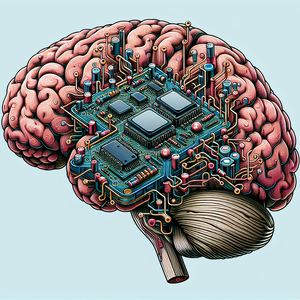How Companies Are Reshaping Roles to Meet Emerging Tech Demands

Emerging technologies like AI and automation are no longer confined to the tech industry; they are permeating every sector, from finance and healthcare to retail and manufacturing. This technological diffusion has fundamentally altered how businesses operate, driving efficiencies, uncovering new opportunities, and creating challenges that demand innovative solutions. Consequently, companies have been forced to rethink their workforce structures, resulting in a wave of new job titles, hybrid roles, and tech-focused departments. These changes are not limited to technical positions; they are also reshaping leadership, marketing, operations, and human resources roles to better align with tech-driven goals. For instance, traditional data-focused roles such as "Data Analyst" have evolved into more specialized positions like "Data Scientist" or "Data Curator." Similarly, leadership roles are also changing, with titles like "Chief AI Officer" and "Machine Learning Strategist" emerging to reflect the growing importance of technology in strategic decision-making.
AI-Driven Job Titles: New Roles for a New Era
One of the most significant outcomes of this tech revolution is the emergence of AI-driven job titles. These roles reflect the unique challenges and opportunities that come with integrating AI into the workplace. Some of the most prominent AI-driven roles include: 1. AI Ethicist: As AI systems become more sophisticated, their ethical implications grow increasingly complex. The role of an AI Ethicist has emerged to address concerns about bias, fairness, and transparency in AI systems. These professionals are tasked with ensuring that AI technologies adhere to ethical guidelines and do not harm individuals or communities. For example, companies like Microsoft and Google have invested heavily in ethics teams to create frameworks that guide the responsible development of AI. 2. Machine Learning Strategist: Machine Learning Strategists bridge the gap between technical expertise and business strategy. These professionals analyze how AI and machine learning can be applied to solve specific business challenges, such as optimizing supply chains, predicting market trends, or improving customer experiences. Their ability to align AI capabilities with organizational objectives makes them indispensable in modern enterprises. 3. Data Curator: Clean, high-quality data is the lifeblood of AI systems, making the role of a Data Curator critical. These professionals are responsible for organizing, labeling, and maintaining datasets to ensure that AI algorithms perform accurately and without bias. Their work is essential for applications ranging from autonomous vehicles to personalized recommendation systems. 4. AI Policy Advisor: Governments and regulatory bodies are also adapting to the rise of AI by creating roles like AI Policy Advisor. These individuals develop guidelines to ensure the ethical and fair use of AI in areas such as law enforcement, healthcare, and education. For example, the European Union has introduced policies to regulate AI, and advisors play a key role in shaping these regulations.
Skills in Demand: Navigating the Tech-Driven Job Market
The rise of AI-driven roles and other tech-focused positions has created a demand for a unique blend of technical and soft skills. Companies are seeking candidates who can navigate the complexities of emerging technologies while also addressing their ethical, strategic, and operational implications. 1. Technical Proficiency: Expertise in programming languages like Python and R, as well as machine learning frameworks such as TensorFlow and PyTorch, is essential for many AI-driven roles. For others, a background in data science, computer engineering, or applied mathematics provides the foundation needed to excel. 2. Ethical and Analytical Thinking: Roles like AI Ethicist require professionals who can think critically about the societal impacts of technology. This involves understanding how algorithms can unintentionally perpetuate biases and implementing safeguards to mitigate harmful outcomes. 3. Strategic Vision: AI-driven roles often require individuals who can foresee how technology will shape business operations and customer experiences. For example, Machine Learning Strategists must identify areas where AI can deliver the most value while minimizing risks. 4. Lifelong Learning: The rapid pace of technological advancement means that professionals must continuously update their skills through certifications, workshops, and self-directed learning. Fields like AI and machine learning are constantly evolving, and staying relevant requires a commitment to lifelong education. 5. Communication Skills: The ability to translate complex technical concepts into actionable insights is critical for professionals who work with diverse stakeholders, including executives, engineers, and policymakers.
Real-World Examples: Companies Leading the Transformation
Several organizations are already at the forefront of reshaping roles to meet the demands of emerging technologies. For example: IBM has established AI ethics teams that work on ensuring the transparency and fairness of its AI solutions. These teams include roles like AI Ethicist and Policy Advisor. Amazon employs Machine Learning Strategists to optimize its logistics network and enhance its customer personalization capabilities, demonstrating how AI can drive operational efficiency and customer satisfaction. Google has created dedicated teams of Data Curators to manage the vast datasets required to train its AI models, such as those used in Google Translate and Google Photos. Even in the public sector, governments are creating roles to oversee AI governance and compliance. The European Union’s emphasis on AI regulation highlights the growing importance of policy advisors who understand both technology and its societal implications.
Preparing for the Future Workforce
The shift toward AI-driven roles and tech-focused positions has profound implications for the workforce. While some fear that automation will lead to widespread job displacement, the emergence of new roles suggests that technology is as much about creating opportunities as it is about disrupting existing ones. However, this transformation also presents challenges. Workers must be prepared to adapt by reskilling and upskilling to meet the demands of the new job market. Collaboration among governments, academic institutions, and businesses will be essential to equip professionals with the tools they need to succeed. Initiatives like AI bootcamps, corporate training programs, and university courses in data science and AI ethics will play a pivotal role in building a future-ready workforce.
The rise of emerging technologies such as AI and machine learning is reshaping the job market in profound ways. Companies are not only adopting these technologies but also creating new roles to manage, implement, and regulate them. From AI Ethicists to Machine Learning Strategists, the demand for hybrid skills that blend technical expertise with strategic vision and ethical awareness is growing rapidly. This transformation underscores the need for individuals and organizations alike to embrace adaptability and lifelong learning. By equipping the workforce with the necessary skills and fostering a culture of innovation, companies can not only meet the challenges of emerging technologies but also unlock their vast potential. In this era of rapid change, those who adapt will thrive, while those who resist risk being left behind. The future of work is here—and it’s being shaped by the technologies we create.
AI Ethicist
Microsoft, IBM, Google, and Meta
Responsibilities
Develop and implement ethical guidelines for AI systems to ensure fairness, transparency, and accountability.
Audit algorithms for potential biases and risks, particularly in sensitive applications like hiring, credit scoring, or healthcare.
Collaborate with cross-functional teams, including data scientists, engineers, and legal advisors, to design responsible AI solutions.
Required Skills
Strong understanding of AI and machine learning technologies, with a focus on their societal impacts.
Background in ethics, philosophy, or law, combined with technical literacy in AI systems.
Excellent communication skills to articulate ethical concerns to both technical and non-technical stakeholders.
Machine Learning Strategist
Amazon, Deloitte, and Netflix
Responsibilities
Identify business challenges that can be addressed through machine learning, such as improving supply chain efficiency or predicting customer behavior.
Design and oversee the implementation of machine learning models aligned with organizational objectives.
Collaborate with business leaders to translate technical outcomes into actionable strategies.
Required Skills
Expertise in machine learning frameworks (e.g., TensorFlow, PyTorch) and data analysis tools.
Strong strategic thinking and business acumen to align AI solutions with long-term goals.
Experience managing cross-disciplinary teams, bridging the gap between technical experts and business leaders.
Data Curator
Google, Tesla, and OpenAI
Responsibilities
Organize, label, and maintain datasets for use in training machine learning algorithms, ensuring data quality and consistency.
Identify gaps or biases in datasets and develop strategies to address them.
Work closely with data scientists and engineers to prepare datasets for specific AI applications, such as autonomous vehicles or recommendation systems.
Required Skills
Proficiency in data management tools and technologies (e.g., SQL, Hadoop, or Apache Spark).
Attention to detail to ensure datasets are accurate, unbiased, and well-structured.
Knowledge of data privacy regulations, such as GDPR or CCPA, to ensure compliance.
AI Policy Advisor
Governments, think tanks, and organizations like the European Union, IBM, and PwC
Responsibilities
Develop and shape policies and regulations governing the use of AI in sectors like healthcare, education, and law enforcement.
Advise organizations and governments on best practices for AI governance, ensuring ethical and legal compliance.
Monitor global AI regulatory trends and assess their implications for business or public policy.
Required Skills
Deep understanding of AI technologies and their societal impacts, coupled with knowledge of legal frameworks.
Strong communication and negotiation skills to work with policymakers, corporate executives, and advocacy groups.
Ability to critically evaluate and balance innovation with ethical and legal considerations.
AI Product Manager
Salesforce, Spotify, and Adobe
Responsibilities
Oversee the development and deployment of AI-driven products, from conceptualization to market launch.
Collaborate with engineers, designers, and business teams to ensure products meet customer needs and business objectives.
Evaluate the feasibility and ROI of integrating AI technologies into existing or new products.
Required Skills
Strong technical background in AI or machine learning, with experience managing product lifecycles.
Excellent project management skills to coordinate cross-functional teams and ensure timely delivery.
Familiarity with user research and customer feedback to drive product innovation.


